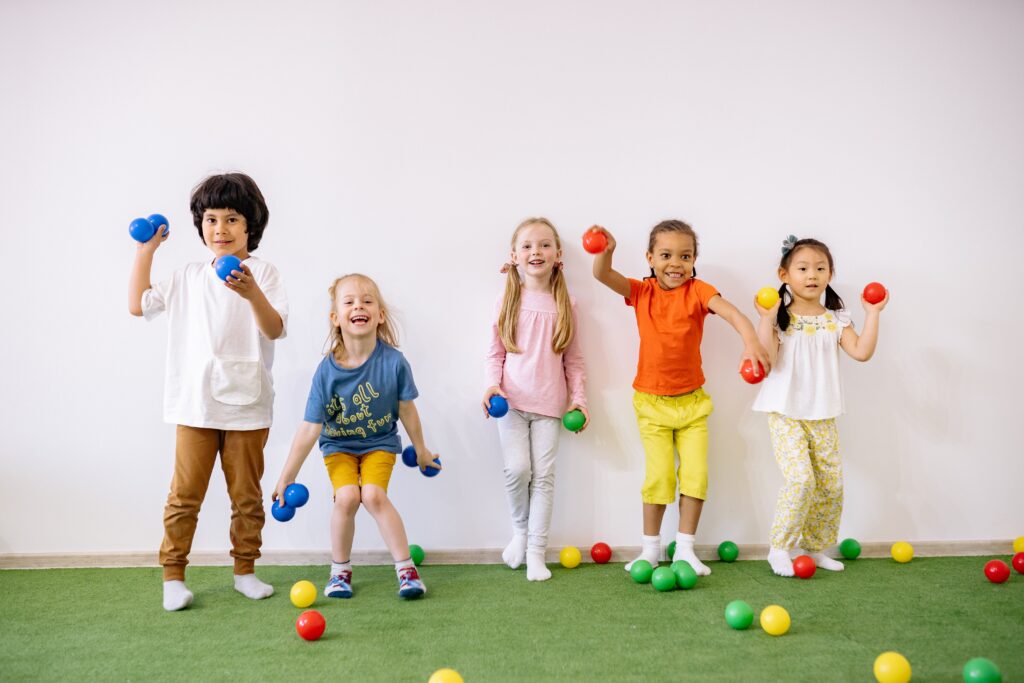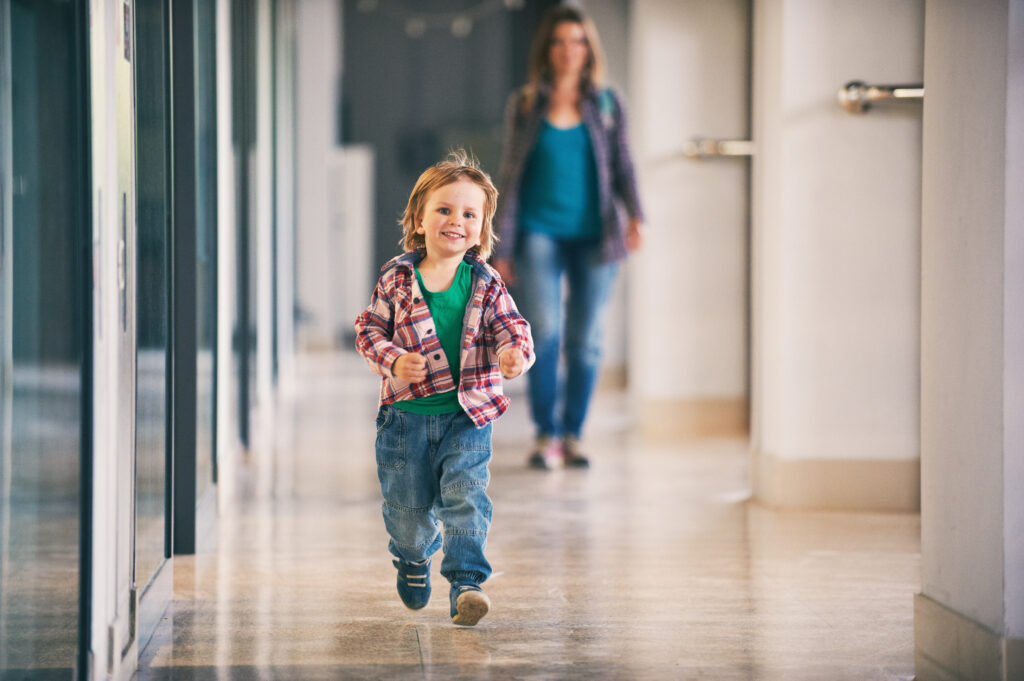TLDR: Every child develops and adapts at their own pace but there are definitely ways to help your child get accustomed to school faster and avoid those crying fits we hear so much about. So how do we set up our toddlers for a successful first school experience? It’s all about preparation, having fun, and being in the correct mindset.


Parents, which scenario seems more likely to you: 1. It’s your toddler’s first day at preschool and she is all smiles as she waves goodbye to you while being whisked away by the teacher who will guide her on this new exciting adventure of learning, or 2. It’s your toddler’s first day at preschool and her face is covered in tears as she clings onto your chest refusing to be snatched away by this stranger who is forcing her to take a plunge into the unknown? Yeah, I’m guessing the latter probably sounds a bit more familiar and closer to real life…but it shouldn’t be! Granted, scenario 1 is the absolute best case scenario but reality doesn’t have to be too far off.
Every child develops and adapts at their own pace but there are definitely ways to help your child get accustomed to school faster and avoid those crying fits we hear so much about. So how do we set up our toddlers for a successful first school experience? It’s all about preparation, having fun, and being in the correct mindset.
Prepare your child mentally by talking about school
In the weeks leading up to their first day, be sure to remind your little one every so often that they’ll be attending school soon and what that means. Explain that after mommy and daddy drop them off at school, they’ll be having fun with friends while you’re at work but that you’ll be back soon to pick them up. Practice phrases like “see you later” instead of “goodbye”, the built-in promise of your return in that phrase will go a long way.
Associate the word “school” with positive things like playing with other children, having snacks, reading books, playing outside, etc. Remind them of this and they’ll be looking forward to school time rather than dreading the goodbyes. Remember, children are extremely curious and actually love to learn (and obviously play), so school should naturally be a fun experience for them. Be careful though, there’s a fine line between excitement and nervousness. Don’t make too big a deal out of this milestone or your child might cross that line real quick!

Pro Tip: Take your child to the store and have them pick out their own school bag. They’ll be excited to get something new and be even more excited to wear the backpack for the first time for its intended purpose
Visit the school beforehand and get to know the other parents
Asking your child to spend a whole day with people they don’t know is already a big ask but to have them do that in a place they’ve never even been to before, is just unfair. Most schools will accommodate a request for a visit/tour before the program actually starts so be sure to do this. Walk around the classroom with your child, have them see where the bathrooms are, where the children sit, where the books and toys are, familiarize them with the surroundings so their first day won’t be completely new. If you can meet and introduce the teachers to them beforehand that would be even better!
It’s also a good idea to get the contacts of some of the other parents in the class. It’s likely those other parents are worried about their children adapting to the change as well, so schedule a play date and have the children meet. Most kids at this age aren’t necessarily focused on playing with other children but the idea here is to just get them acquainted so that there are a few less unfamiliar faces when school actually starts.

Succeeding inside the classroom
Having a successful experience with school goes beyond getting your child through the front door without tears. They need to be ready for what goes on in the classroom too. In order to ensure they thrive, we go back again to preparation. There are certain skills your child should have developed or are in the process of developing at this point, such as knowing their own name, which will help them get through routine tasks in school easier. There will be so many new things for them to experience while at school, it can be difficult to focus on the fun activities if they are also at the same time getting bombarded with learning something like how to use the potty. This isn’t the Ivy Leagues, it should be a low-pressure, low-stakes environment where the child can have fun, learn and be comfortable developing the basics of social skills and their independence.

Here are a few things we can teach our toddler ahead of time to make their school experience much easier:
- Knowing their name – If your child can recognize their own name and know to respond to it, the teachers will have an easier time connecting with them
- Communication – It can be through speech, finger pointing or whatever, as long as they have some way to communicate with the teachers then that’s perfect
- Potty trained – Preschool schedules usually include set blocks of time for the potty. While teachers will ask your kid to be wearing a diaper/pull-up anyway, if your child is trained to go on schedule or are able to ask when they need to use the potty, this can avoid multiple diaper changes throughout the day
- Utensils – Using utensils to eat instead of bare hands is not only less messy but will reduce the risk of catching germs. Keep in mind also that in Asian bilingual schools, menus normally include items like rice and noodles which are best eaten with a fork or spoon
- Eating a variety of food – Your kid might love eating only mac & cheese but school menus are designed to be balanced. That means there may be a protein, veggie, or carb that your child is unfamiliar with and you’ll want to avoid a hangry child by introducing them to a variety of foods early on. Bilingual schools will generally have a more diverse menu too
- Comfort Item – This could be anything, a teddy, a doll, a towel, just something they can turn to for comfort if they ever feel uneasy
- Sleep trained – Like potty training, it’s okay if your little one isn’t 100% sleeping on their own but they should be comfortable with the concept of unwinding and having quiet downtime. This is where the comfort item will come in clutch as well
- Adequate sleep – make sure your kid gets plenty of sleep on school nights. The new setting and nap schedule at school may be a challenging adjustment so getting enough sleep the night before will avoid a cranky toddler
If your kid isn’t a master at these things yet, it’s okay! As long as they’ve been introduced to these concepts ahead of time, it won’t be such a shock when they need to suddenly do these things on their own at school. Remember, school is meant to enhance and build on skills that your child should already be working on at home. The teachers will be there to guide but if they’re busy teaching these skills from scratch, they can’t help the child focus on all the other fun aspects of school.
Your baby’s first day of school isn’t just a milestone for them, it is for you as well. You’re probably feeling all types of emotions about this transition ranging from excitement to fear to happy to nervous. But it’s important that you don’t project those negative emotions onto your child. Stay positive and supportive and they’ll feed off that energy. Good luck to all you proud parents!
And oh yeah, it’s completely fine if you want to cry, it’s a big day…just do it after you drop off, okay?
